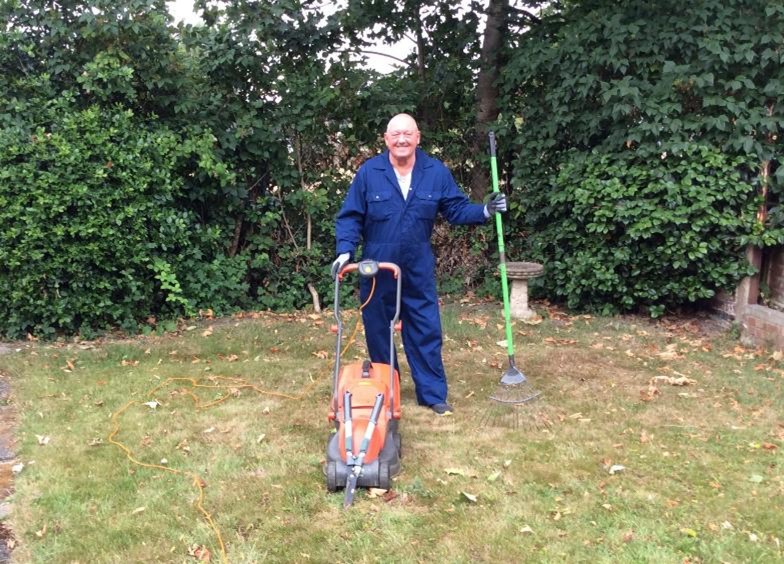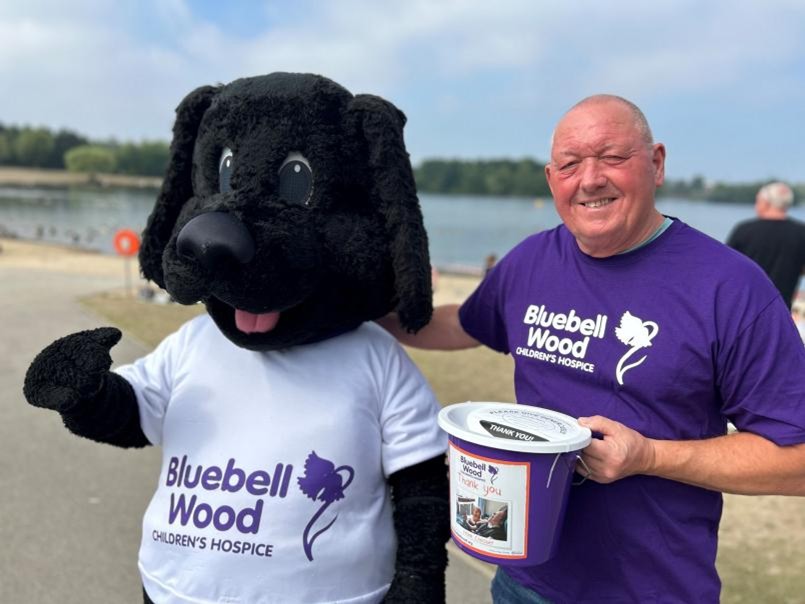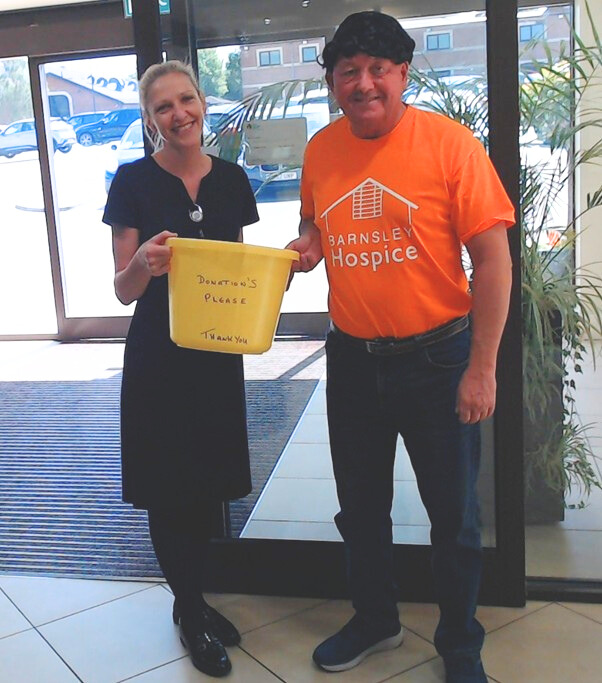While conversations about hormonal health often centre around women’s experiences with menopause, far less attention is given to the hormonal challenges men can face.
That’s something 65-year-old Jeff Anders, from the Dearne Valley, hopes to change.
After struggling for months with brain fog, fatigue, weight loss and suicidal thoughts, Jeff was diagnosed with hypogonadism, a condition caused by low testosterone levels.
Now the Barnburgh resident is speaking out to help other men recognise the overlooked symptoms of low testosterone and to break the taboo of men’s hormonal health.
Having led a busy and active lifestyle, running his own DIY handyman and cleaning business for 35 years, Jeff noticed a change in his health last October around the time he turned 65. It started with confusion and memory loss, with Jeff unable to do everyday tasks.
“We can all wake up a bit confused on a Monday morning, but I’d walk off jobs without my tools or ladders. Customers would ask me to assemble flat pack furniture and I couldn’t process the simple instructions. I couldn’t even remember how to turn my shower on. It completely wiped my mind out,” Jeff says.

His initial worry was dementia, having a family history of the disease. However, the regular gym goer also lost two stone in weight.
Jeff’s GP did tests for vitamin deficiencies and cancer which came back negative. He was told it could be stress-related or even SADs, aka the winter blues, due to the time of year.
By January, Jeff’s symptoms had worsened.
“I’d lost muscle mass, energy, drive and the will to live. I was suicidal, agoraphobic and was housebound. I would close the curtains all day to shut the world out.”
A female GP suggested Jeff may have hypogonadism which is similar to menopause in women. He had blood tests to check his testosterone level, which was 6.1 nmol/L. Anything below 12 requires hormone replacement therapy.
Jeff was referred to endocrinology at Barnsley Hospital but was told there would be a 13-week wait to be seen. He chose to see the hospital’s endocrinologist, Professor T. H Jones, as a private patient to speed up investigations.
“If I’d have waited 13 weeks then I wouldn’t be sat here today, my mental health was that bad. Professor Jones has been fantastic and assured me that a tiny hormone like testosterone can throw your brain function into complete disarray.”
In Jeff’s case, the low testosterone is caused by the pituitary gland in the brain not sending signals to the testes to produce testosterone. This is called secondary hypogonadism.
Some men have primary hypogonadism caused by problems with the testicles. In either form, hypogonadism can be congenital or acquired later in life from things like ageing, injury, illness, chemotherapy, obesity, or type 2 diabetes.
As well as being essential for sperm production and erectile function, testosterone helps maintain bone density and strength, promotes muscle mass, regulates sleep patterns, supports metabolic functions, and affects mood, motivation, and energy levels.
Since being diagnosed in February, Jeff has started on hormone replacement therapy in the form of a topical gel that is applied to the skin daily, which has increased his blood test levels by ten points.
Most men with hypogonadism are offered regular hormone injections, but due to having had a heart attack 15 years ago, Jeff wasn’t suitable for them.
“My symptoms of the mind have settled down immeasurably, but I have been left with some memory loss and debilitating fatigue. The heart attack didn’t hurt like this. I got over it, got my fitness back in the gym and went back to work. With the fatigue there are days when I can’t even lift a cup.”
Due to his symptoms, Jeff had to close his business at the end of last year.
“I did a lot of maintenance work on doctors’ surgeries and felt unsafe on building sites. I wasn’t confident and felt like I had my head in a goldfish bowl. It heightens your senses and amplifies them by ten. Sometimes, the only way to stop my brain exploding was to sit with a bag of frozen peas on my head.”

Since packing in work, Jeff has turned his health woes into a positive by becoming a fundraiser for Barnsley Hospice and Bluebell Wood Children’s Hospice. When well enough, he carries out small DIY and cleaning jobs for his customers who give a donation to the two charities instead of paying him.
“I’ve had a calling for many years to do charity work when I retired as I’m not one to sit down and do nothing. Barnsley Hospice looked after my dad before he died from stomach cancer 13 years ago, so I always wanted to repay them for the great care and love they showed him. And I knew about Bluebell Wood as a former customer of mine had a child with a terminal illness who went there.
“Being a fundraiser helps me fill my time and keep doing a little bit enjoyably without the pressure of earning money to pay bills. I’ve found a fantastic balance where I can work for a couple of hours before I need to sit down for a rest.”
As well as his handyman services, Jeff is also organising a range of events for the remainder of the year including a charity fishing match at Bolton Bricks Pond and a fundraising night at Clayton and Frickley Club.

But most of all, Jeff hopes to encourage other men to be aware of changes and not shrug it off as just becoming a grumpy old man.
“The symptoms of hypogonadism can be easily misdiagnosed as mental illness. So many other people didn’t understand it and thought I was just having the moody blues. As my mental health worsened, and with NHS waiting times being up to two years, I went to Andy’s Man Club at Goldthorpe Library. I come from a mining background so was never a man who believed I’d go to such a thing but I’m so glad I did. Hearing other men talk about their own problems put things into perspective.
“I’m confident that there will be men out there who have had this condition undiagnosed and taken their lives because of it. If me speaking out makes just one man go to the doctors and push for a diagnosis then that’s all I can ask for.”
To donate, visit Jeff’s JustGiving pages for Barnsley Hospice or Bluebell Wood Children’s Hospice






